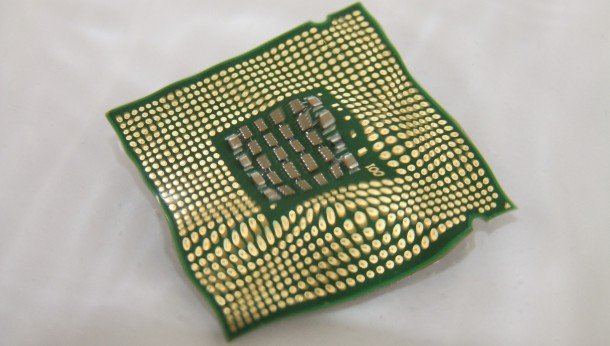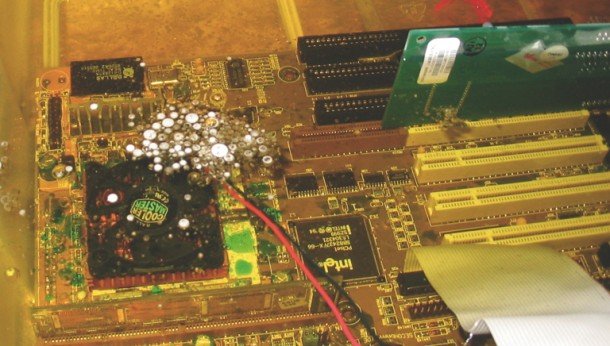Uni of Leeds takes liquid cooling to its logical conclusion: total immersion

Where once water-cooling your PC meant straying into a world of techy frustration and possible b0rking of expensive components, now it is a mainstay of mainstream gaming/performance PCs. I'm kinda hoping the same becomes true of the sort of liquid-cooling setup the University of Leeds is trialling in its School of Mechanical Engineering.
The guys over at Bit-tech are reporting the UK-based company Iceotope is working in partnership with the university on a new form of cooling for large-scale server networks. It uses a form of total immersion cooling utilising a non-conductive liquid, called Novec, which is around 1000 times more efficient at transferring heat than air.
Total immersion is exactly what it sounds like.
Each of the servers is submerged so that the Novec liquid is in contact with the entire system. The heat from the components is transferred into the liquid with the warmer liquid shifting to the top of the cabinets.
A pump then moves a secondary coolant liquid from the base of the server cabinet around to a passive cooler at the top of the server. Here the heat is transferred from the Novec liquid to the secondary coolant on a different loop.
The secondary coolant is simply water which then passes through more heat exchangers on the way down from the top of the cabinet which in turn shifts the built-up heat to an external loop.
The huge amount of electricity that is currently used to keep massive server farms cool - including the air-conditioning systems in the actual server rooms themselves - could largely be offset using this total immersion system.
Keep up to date with the most important stories and the best deals, as picked by the PC Gamer team.
Iceotope reckon that this system draws just 80W to cool around 20KW of server kit.
This is not a new idea though. Back in 2006 PCFormat ran a feature with some tech-savvy Dutch folk who decided to create an oil bath for their PC. Using standard, shop-bought peanut oil - a good electrical insulator as it turns out - Ebo Eppenga and friends submerged everything bar the PSU and HDD in a plastic bin full of oil.

Total immersion cooling has also made an appearance in a commercial sense too, with US company Hardcore Computer releasing the Reactor in 2009.
The PC chassis housed all the components submerged in a non-conductive liquid. Though not to any great effect, apart from making the machine feel all, y'know, sci-fi.
It sure is going to make future upgrading a little messy - and my test rig is going to need a lot of work to get it to this point - but the promise of totally silent, cool computing is still rather tantalising.
It's unlikely to become quite as mainstream as water-cooling is now - but if you could fry chips from the heat of your overclocked CPU...

Dave has been gaming since the days of Zaxxon and Lady Bug on the Colecovision, and code books for the Commodore Vic 20 (Death Race 2000!). He built his first gaming PC at the tender age of 16, and finally finished bug-fixing the Cyrix-based system around a year later. When he dropped it out of the window. He first started writing for Official PlayStation Magazine and Xbox World many decades ago, then moved onto PC Format full-time, then PC Gamer, TechRadar, and T3 among others. Now he's back, writing about the nightmarish graphics card market, CPUs with more cores than sense, gaming laptops hotter than the sun, and SSDs more capacious than a Cybertruck.

